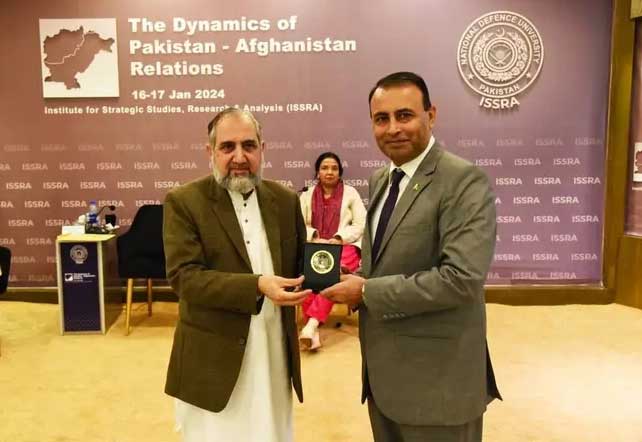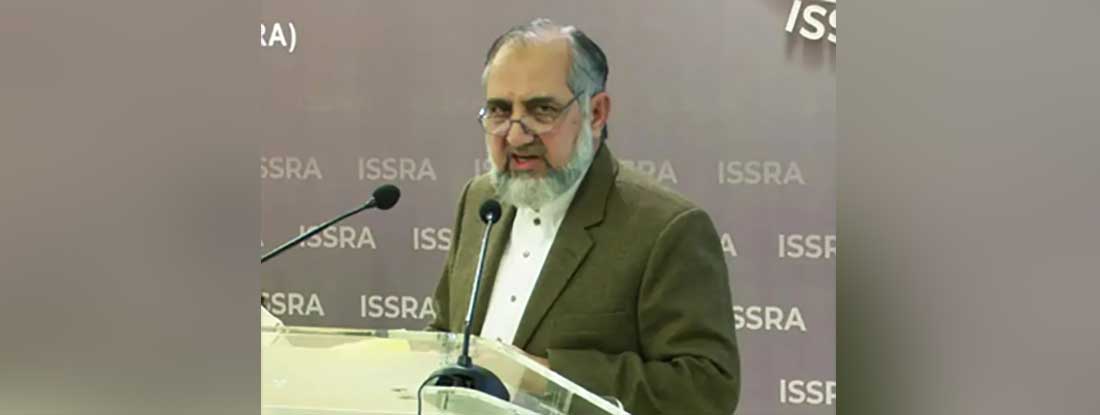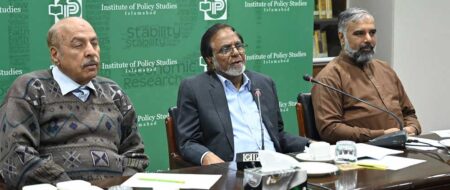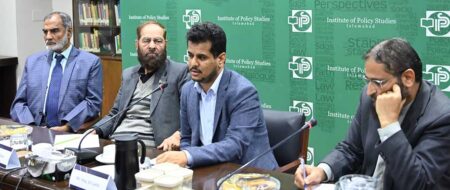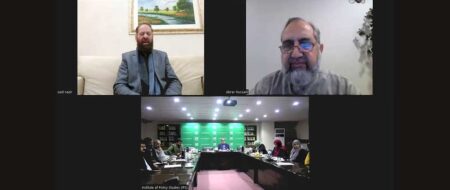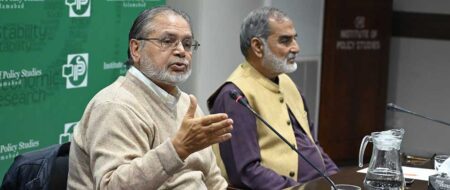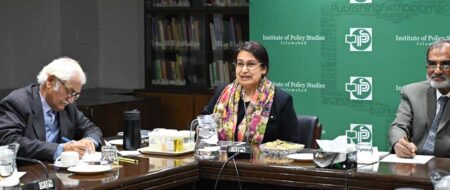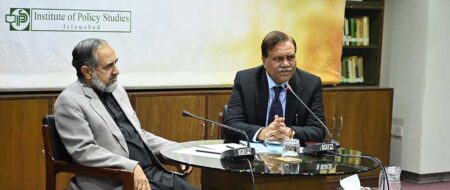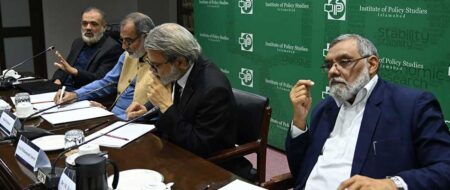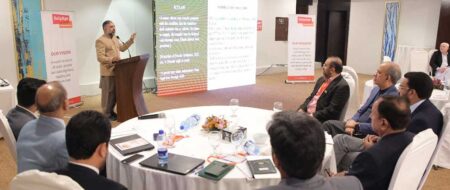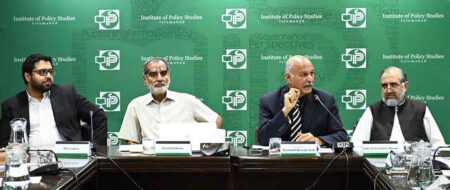Ambassador Abrar encourages strengthening Pak-Afghan strategic ties despite bilateral tensions
Any instability in Pakistan and Afghanistan will impede development and please our common enemies. Therefore, both countries must remember the commonalities over differences and advocate for strategic thinking and joint efforts to combat terrorism and promote peace and prosperity.
These notions were shared by IPS’ Vice Chairman, Ambassador (r) Syed Abrar Hussain, while speaking at a seminar titled ‘Balancing Security and Development: Addressing Terrorism, Refugee Flow, and Border Security’, held at the National Defense University (NDU), Islamabad, on January 16, 2023.
Ambassador Abrar highlighted the intertwined relationship between Pakistan and Afghanistan, emphasizing the need for strategic cooperation despite bilateral tensions. He underscored that Pakistan has historically supported Afghanistan during crises and hosted millions of Afghan refugees. However, now that Afghanistan is at peace, Pakistan fairly seeks the repatriation of undocumented immigrants to contribute to Afghanistan’s development. Pakistan is still hosting around 2.7 million Afghans and is also engaged in the resettlement of Afghan refugees in third countries, he said.
Moreover, security concerns, exacerbated by increased terrorist attacks in Pakistan following the Taliban’s takeover of Afghanistan, drive Pakistan’s expulsion of illegal immigrants. These attacks rose by 28% in 2022 and a staggering 79% in 2023.
He said that Pakistan’s decision to repatriate illegal immigrants raises concerns among Afghans, who fear humanitarian crises and perceive the decision as hasty. This perception of haste in Pakistan’s sudden announcement has generated misconceptions for which there should be a counter-narrative.
Moreover, the issue of illegal Afghans should be addressed through a comprehensive approach. While it is pertinent that Pakistan should outline its policy clearly, international organizations such as UNHCR, IOM, and others can foster constructive engagement and cooperation to leverage the pull factors in Afghanistan. One of the major pull factors, i.e., peace, is already there. Other pull factors can include a place for residence, a piece of land, some money to start a business, and some quotas for refugees in government jobs. Scholarships for the students returning to Afghanistan could also be announced in Afghan educational institutions. Moreover, incentives for Afghan refugees can also be created in other countries as a comprehensive approach.
